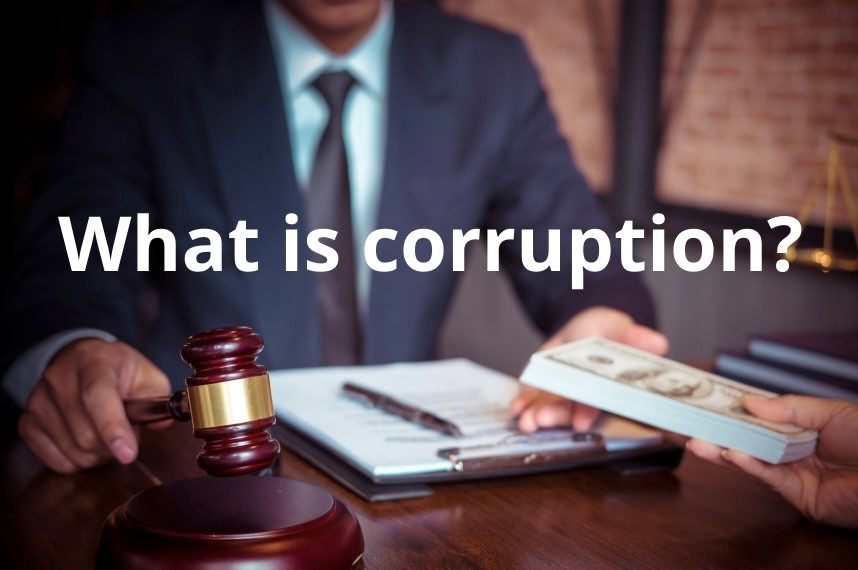
What is corruption?
The primary statute governing corruption in South Africa is the Prevention and Combating of Corrupt Activities Act 12 of 2004 (“PACCA”). Other relevant statutes criminalising corruption and bribery in South Africa include: the Prevention of Organised Crime Act 1998, the Protected Disclosure Act 2000, the Financial Intelligence Centre Act 2001, the Protection of Constitutional Democracy against Terrorist and Related Activities Act 2004 and the Competition Act 1998.
Section 3 of PACCA describes the general offence of corruption (or attempted corruption) basically as follows:
- Any person who accepts (or agrees to accept or offers to accept) for his/her own benefit or for the benefit of another
- any gratification from another person (or gives, or even agrees to give, or offer to give, any gratification to another person)
- to influence the receiver to personally act, or influence another person to act, in a way which amounts to conduct which is:
- illegal, dishonest, unauthorised, incomplete, or biased; or
- misuse or selling of information or material acquired in the course exercise, carrying out or performance of any powers, duties or function arising out of a constitutional, statutory, contractual or any other legal obligation; or
- that amounts to the abuse of a position of authority, a breach of trust; or the violation of a legal duty or a set of rules; or
- designed to achieve an unjustified result; or
- that amounts to any other unauthorised or improper inducement to do or not to do anything.
This applies to both public officials and private individuals. This means that corruption is a criminal offence in the public and private sectors. Furthermore, both individuals and corporate entities can be held liable for corruption.
“Gratification” has a wide definition in terms of the PACCA and includes:
- Money (whether in case or otherwise).
- Any donation, gift, loan, fee, reward, valuable security, property or interest in property of any description, whether movable or immovable, or any other similar advantage.
- The avoidance of a loss, liability, penalty, forfeiture. punishment or other disadvantage; any office, status, honour, employment, contract of employment or services, any agreement to give employment or render services in any capacity and residential or holiday accommodation.
- Any payment, release, discharge or liquidation of any loan, obligation or other liability. whether in whole or in part.
- Any right or privilege.
- Any real or pretended aid, vote, consent. influence or abstention from voting.
- Any valuable consideration or benefit of any kind, including any discount, commission, rebate, bonus, deduction or percentage.
What are the legal consequences of corruption?
If you have suffered damages as a result of corruption by anyone, in the private or public sector, you have the following options:
- To lay a criminal complaint at the South African Police Services (SAPS). In terms of our Constitution, SAPS must investigate criminal complaints and the National Prosecution Authority (NPA) must prosecute criminal cases with merit. Depending on the seriousness of the complaints, the Hawks (Directorate of Priority Investigation), the SIU (South African Special Investigation Unit) and/or the NPA’s Anti-Corruption Task Team may get involved.
- To consider instituting civil proceedings in court against the responsible person/s with a view to get an order, including to recover damages.
If found guilty of the criminal offence of corruption or bribery, a court may order prison sentences (maximum of life imprisonment), payments of fines (of unlimited value) and black listing on the Register for Tender Defaulters.
Whistleblowing is regulated by the Protected Disclosure Act 2000 which protects whistleblowers and encourages disclosures relating to criminal and other irregular acts.
How can your business or organisation avoid getting involved in corruption?
Regrettably, corruption has become systemic in some sectors in South Africa over years, in particular in the public sector. Corruption should never become acceptable, although some government officials may start to think “its OK, because everyone is doing it”, based on slow legal processing of high profile politicians or corrupt officials…
Corruption supports the misuse of power and unfairly robs people of money and opportunities. Corruption is unethical and illegal.
Stopping corruption in South Africa starts with every person involved in transactions. Here are tips to avoid getting involved in corruption:
- Commit to conduct business ethically, legally and fairly.
- Don’t bribe or extort anyone to get tenders, discounts or deals.
- Formalise any deals and record transactions in writing.
- Develop clear written internal policies and controls to govern transactions or acts which may involve any gratification to another person.
- Adopt the best practice to keep registers and records of gifts, hospitality, travel or entertainment expenses, relating to persons you can gain a benefit from, to ensure expenses are reasonable and honest in all circumstances.
- Gratification (including offering shares or kick-backs) of public officials should be avoided at all cost.
- Unless it is an openly known family business in the private sector, avoid nepotism (benefitting or promoting someone merely because of family relations).
- Educate yourself and your people on what corruption is and provide safe reporting structures.
- Report corrupt activities to SAPS.
South Africa has the legal framework (statutes) and legal expertise to govern, prevent and punish corruption. It is hoped that more people of South Africa will learn to identify and report corruption fast to help bring justice to victims and help heal our country’s economy.
Our lawyers are against corruption and can assist with advice, drafting or reviewing of contracts and policies, and assisting with disputes relating to corrupt acts in the private sector. If you are interested to connect with lawyers specialising in litigation or business contracts, you are welcome to click here: https://lawyersworkingfromhome.co.za/connect-with-a-lawyer/